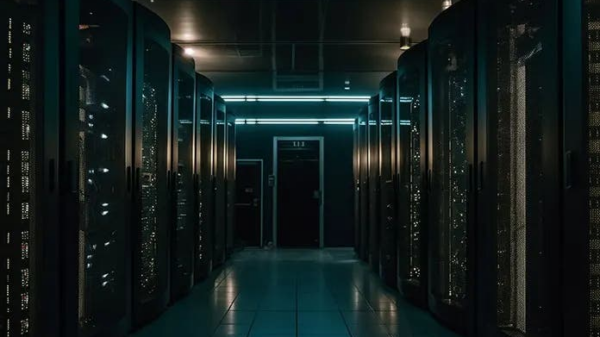The ongoing debate surrounding the AI trade on Wall Street has intensified, with many questioning whether the current market represents a bubble. This uncertainty has led to significant fluctuations in the stock prices of various AI companies over the past year. At a recent Yahoo Finance event, Robert Smith, CEO of Vista Equity Partners, shed light on this complex issue.
Smith pointed out that the situation is not merely black and white. “Some parts of this market are in bubbles, and other parts are very much in a great, investable space,” he stated, emphasizing the nuanced nature of the AI landscape. This perspective is crucial as investors navigate the volatility inherent to AI stocks.
Infrastructure Challenges Ahead
One critical factor affecting the expansion of AI capabilities in the United States is the availability of electricity required to power the data centers that host AI technologies. Smith noted that in the near term, this is likely to be a major constraint on the development of AI infrastructure. “I think in other parts of the global economy, they have an excess of power, relatively speaking,” he explained, questioning whether this surplus could be effectively utilized to support generative AI, agentic AI, or GPU data centers.
Despite these challenges, Smith reported positive momentum in the AI sector. His firms have already seen success with agentic solutions, which are being installed and yielding tangible results. “I think we have 18 of our companies that already have agentic solutions in the market,” Smith claimed, highlighting the progress being made.
Impact on Employment
While the advancements in AI promise increased productivity, they also raise significant concerns regarding the future of employment—particularly for entry-level positions. A recent study from Stanford University revealed a 13% relative decline in employment for early-career workers (ages 22-25) in sectors most affected by generative AI, even when controlling for firm-level shocks. This statistic underscores the potential disruption AI could bring to the job market.
Smith noted that jobs in sales might be particularly vulnerable. Typically, salespeople spend about 15% of their time directly selling, with the remainder consumed by administrative tasks like note-taking and strategy development. AI could take over many of these auxiliary functions, which are often handled by entry-level employees. “So there’s going to be some shakeout in those parts of the market,” he cautioned, suggesting that the transition could lead to significant workforce changes.
Interestingly, this shift may also be occurring within Vista Equity Partners itself. According to reports from the Financial Times, the firm is exploring workforce reductions as it seeks to integrate AI software into various roles. While Smith refuted claims of cuts as high as 30%, he did acknowledge that hiring is slowing down, indicating a shift in how the firm operates.
Ultimately, the question of whether the AI market is in a bubble may hinge not just on financial valuation but also on the infrastructure challenges and employment implications that accompany rapid technological advancements. As we move forward, these factors will play a pivotal role in shaping the future landscape of the AI industry.
See also MoxiWorks Launches RISE, AI Marketing Platform to Enhance Real Estate Agent Engagement
MoxiWorks Launches RISE, AI Marketing Platform to Enhance Real Estate Agent Engagement AI-Powered Personalization Achieves 20% Customer Engagement Boost by 2025, Says OneTrust
AI-Powered Personalization Achieves 20% Customer Engagement Boost by 2025, Says OneTrust Forethought AI’s Deon Nicholas Reveals 7-Failure Rule for Product-Market Fit Success
Forethought AI’s Deon Nicholas Reveals 7-Failure Rule for Product-Market Fit Success Fake AI-Generated Christmas Market at Buckingham Palace Misleads Social Media Users
Fake AI-Generated Christmas Market at Buckingham Palace Misleads Social Media Users ChatGPT Reveals AI Bubble Risks: 10%-20% Market Drop Likely, Says Expert Analysis
ChatGPT Reveals AI Bubble Risks: 10%-20% Market Drop Likely, Says Expert Analysis





































































